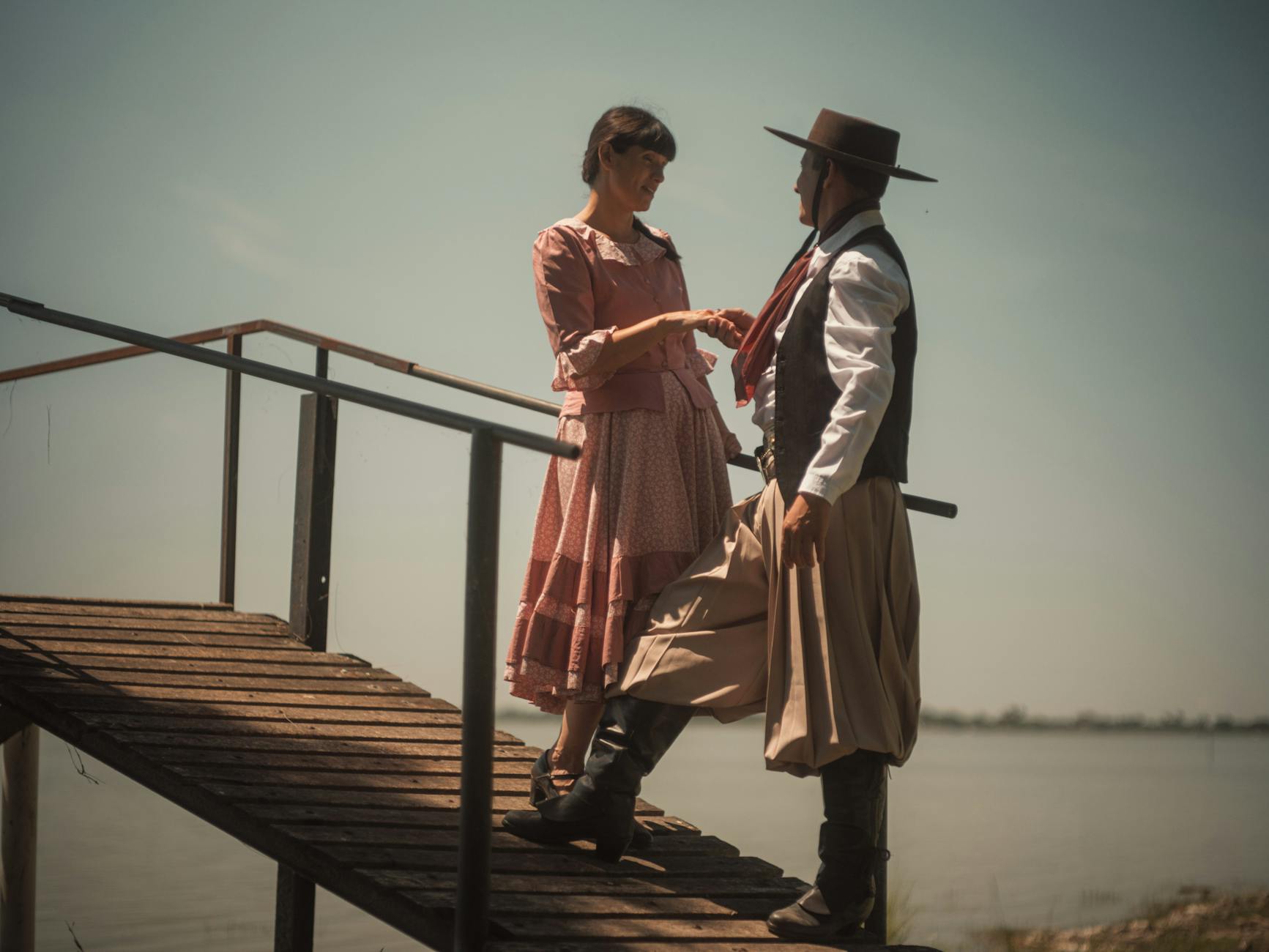Understanding how historical events shape biopics reveals the complex interplay between documented fact and cinematic storytelling, and Steven Spielberg’s Lincoln (2012) stands as one of the most instructive examples of this dynamic in contemporary filmmaking. The film, which focuses on the final four months of Abraham Lincoln’s life and his efforts to pass the Thirteenth Amendment abolishing slavery, demonstrates how filmmakers must navigate the tension between historical accuracy and dramatic necessity. Rather than attempting to compress Lincoln’s entire life into a single narrative, Spielberg and screenwriter Tony Kushner made the deliberate choice to examine a specific historical moment, creating a film that functions both as political thriller and character study. The questions surrounding historical accuracy in biographical films have generated debate since the genre’s earliest days. Critics and historians frequently clash with filmmakers over the liberties taken with documented events, dialogue, and characterization.
Lincoln enters this conversation as a particularly fascinating case study because it draws heavily from Doris Kearns Goodwin’s meticulously researched book “Team of Rivals” while simultaneously making conscious creative decisions that depart from the historical record. The film earned widespread critical acclaim and twelve Academy Award nominations, including wins for Best Actor and Best Production Design, suggesting that audiences and critics found its approach to history compelling rather than compromising. By the end of this analysis, readers will understand the specific techniques Spielberg and Kushner employed to translate historical events into compelling cinema, the debates their choices sparked among historians, and the broader implications for how we consume history through film. The examination covers everything from the film’s treatment of the Thirteenth Amendment’s passage to its portrayal of Lincoln’s relationships with his family and political allies. This analysis serves as both a study of one specific film and a framework for understanding how all biopics negotiate the space between what happened and what makes for effective storytelling.
Table of Contents
- How Do Historical Events Shape the Narrative Structure of Lincoln?
- Analyzing Lincoln’s Portrayal of Political Maneuvering and Historical Accuracy
- Daniel Day-Lewis’s Lincoln and the Challenge of Historical Characterization
- How Biopics Like Lincoln Balance Entertainment with Historical Education
- Common Criticisms and Controversies Surrounding Lincoln’s Historical Approach
- The Lasting Influence of Lincoln on Subsequent Historical Biopics
- How to Prepare
- How to Apply This
- Expert Tips
- Conclusion
- Frequently Asked Questions
How Do Historical Events Shape the Narrative Structure of Lincoln?
The decision to focus Lincoln on a four-month period rather than the president’s entire life fundamentally shaped how historical events function within the film’s narrative structure. Spielberg and Kushner rejected the traditional biopic approach of chronicling a subject from birth to death, instead selecting the January 1865 effort to pass the Thirteenth Amendment as their dramatic centerpiece. This choice allowed them to treat a specific historical event as the spine of a political thriller, with the vote count serving as the ticking clock that drives dramatic tension. The historical reality that the amendment’s passage was genuinely uncertain, with Lincoln needing to secure Democratic votes through various means, provided built-in stakes that no invented plot device could match.
The film’s structure mirrors the actual legislative process Lincoln navigated, moving between scenes of backroom dealing, cabinet meetings, and domestic life at the White House. Historical events shape not just what happens but how information is parceled out to viewers. The script introduces the problem of needing twenty additional votes early, then tracks each conversion as a small victory while maintaining suspense about whether the final tally will succeed. This approach transforms documentary information into dramatic beats, with each historical figure who switched their vote becoming a character whose decision carries weight.
- The film compresses the timeline of certain events while maintaining the sequence of major historical milestones
- Individual historical figures like Thaddeus Stevens receive expanded screen time based on their dramatic utility rather than strict historical importance
- The parallel storyline involving the Confederate peace delegation creates additional tension by threatening to derail the amendment vote
- Lincoln’s assassination, though inevitable from the audience’s perspective, is handled obliquely, respecting both historical gravity and dramatic pacing

Analyzing Lincoln’s Portrayal of Political Maneuvering and Historical Accuracy
The film’s depiction of the political maneuvering required to pass the Thirteenth Amendment sparked significant discussion among historians about where dramatic license ends and historical distortion begins. Lincoln portrays the amendment’s passage as requiring extensive deal-making, including the hiring of lobbyists to offer federal positions to lame-duck Democrats in exchange for their votes. While this general characterization aligns with historical consensus, specific scenes and dialogue were invented to dramatize processes that left few documentary traces. The three lobbyists portrayed in the film””played by james Spader, John Hawkes, and Tim Blake Nelson””are composites and inventions rather than documented historical figures.
The controversial Connecticut voting scene exemplifies the tension between historical accuracy and dramatic necessity. In the film, Connecticut’s representatives are shown voting against the amendment, which troubled historians because Connecticut’s actual representatives voted in favor. Kushner defended this choice as necessary for dramatic purposes, arguing that showing unanimous Northern support would have undermined the film’s depiction of the amendment’s precarious position. This defense highlights a fundamental challenge in analyzing Lincoln: the film prioritizes emotional and thematic truth over granular factual accuracy, a trade-off that reasonable people can evaluate differently.
- Historical records confirm Lincoln did engage in political horse-trading for the amendment, though specific conversations are largely undocumented
- The film accurately portrays the Republican concern that a peace agreement would remove pressure to pass the amendment
- Thaddeus Stevens’s decision to moderate his public statements about racial equality, depicted as a strategic choice, reflects historical accounts
- The timeline compression means some events that occurred over weeks are shown happening within days
Daniel Day-Lewis’s Lincoln and the Challenge of Historical Characterization
Daniel Day-Lewis’s Academy Award-winning performance as Lincoln demonstrates how actors and filmmakers must construct characterizations from fragmentary historical evidence. No audio recordings of Lincoln exist, and contemporary descriptions of his voice and manner varied considerably. Day-Lewis and Spielberg chose to portray Lincoln with a high, reedy voice rather than the deep baritone popular imagination often assigns to the president.
This choice drew from historical accounts, including descriptions from Lincoln’s contemporaries who noted his Kentucky-accented tenor, showing how research can overturn assumptions that audiences might initially find surprising. The physical and psychological portrait of Lincoln emerges from a combination of historical sources, including letters, diary entries from those who knew him, and the photographic record. Day-Lewis incorporated Lincoln’s documented habits””his tendency to tell long stories, his melancholic disposition, his informal manner with subordinates””into a performance that aimed for historical plausibility rather than impersonation. The result is a characterization that historians largely praised for capturing something essential about Lincoln’s personality, even when specific scenes or dialogue were invented.
- Lincoln’s storytelling habit, featured prominently throughout the film, appears in numerous contemporary accounts
- The depiction of Lincoln’s marriage to Mary Todd as troubled but affectionate reflects historical consensus
- His relationship with his sons, particularly the tension over Robert’s military service, draws from documented family conflicts
- The film portrays Lincoln’s depression as a known historical element rather than a modern reinterpretation

How Biopics Like Lincoln Balance Entertainment with Historical Education
Biographical films occupy a unique cultural position as both entertainment products and de facto history lessons for mass audiences. Studies suggest that many viewers form lasting impressions of historical figures and events from films rather than academic sources, placing significant responsibility on filmmakers regarding what they choose to depict and how. Lincoln approaches this responsibility by grounding its invented dialogue in documented attitudes and positions, ensuring that even fabricated conversations reflect what historical figures plausibly might have said. This approach differs from films that invent wholesale plot points or attribute beliefs to historical figures that contradict the documentary record.
The educational function of biopics extends beyond simple fact transmission to shaping how audiences understand historical causation and agency. Lincoln presents the amendment’s passage as resulting from a combination of Lincoln’s political skill, moral conviction, strategic timing, and historical circumstance””a multicausal explanation that historians generally endorse. The film avoids the great man theory trap of suggesting Lincoln single-handedly ended slavery while also rejecting deterministic narratives that would minimize individual agency. This balanced approach models how historical change actually occurs, potentially teaching viewers something about historiography alongside the specific historical content.
- The film’s PG-13 rating made it accessible for classroom use, and many educators incorporated it into curricula
- Study guides produced in conjunction with the film’s release helped teachers contextualize dramatic license
- The portrayal of the political process, while simplified, introduced many viewers to concepts like lame-duck sessions and constitutional amendments
- Critical discussion of the film’s accuracy itself became an educational opportunity about how history is constructed
Common Criticisms and Controversies Surrounding Lincoln’s Historical Approach
Despite widespread critical acclaim, Lincoln faced substantive criticism from historians and commentators who questioned specific choices and broader representational strategies. The most persistent criticism concerned the film’s relative marginalization of African American agency in the abolition of slavery. While the film includes scenes of Black soldiers and domestic servants, critics argued that the narrative centers white political actors and presents emancipation as something done for Black Americans rather than partially achieved by them. Historian Kate Masur’s New York Times op-ed, published shortly after the film’s release, articulated this criticism in detail, sparking a public exchange with Tony Kushner.
The film’s treatment of the Confederate peace delegation also generated debate. In the historical record, Lincoln’s handling of the Hampton Roads Conference involved complex diplomatic maneuvering, and some historians questioned whether the film oversimplified this episode to heighten dramatic tension. The depiction of Lincoln’s apparent willingness to delay the amendment for peace negotiations troubled those who saw it as potentially misrepresenting his priorities. Defenders argued that the film showed Lincoln’s political pragmatism rather than suggesting he would actually have abandoned the amendment.
- The limited screen time for Frederick Douglass and other Black abolitionists drew criticism for narrowing the story’s scope
- Some historians disputed the film’s implication that the Thirteenth Amendment was necessary to prevent re-enslavement after the war’s end
- The portrayal of Radical Republicans as somewhat extremist, while historically grounded, was questioned by those who saw their positions as morally correct
- Connecticut legislators formally objected to the film’s depiction of their state’s vote, leading to discussions about regional historical sensitivity

The Lasting Influence of Lincoln on Subsequent Historical Biopics
Lincoln’s commercial and critical success influenced how subsequent filmmakers approached historical subjects, particularly in its demonstration that narrow focus could yield broad resonance. Rather than attempting comprehensive biographical coverage, films like Selma (2014) and Darkest Hour (2017) adopted similar strategies of examining specific historical moments in depth. The Lincoln model suggested that audiences would accept films requiring historical knowledge and patience, countering industry assumptions that historical dramas needed action sequences or romantic subplots to succeed commercially.
The debates surrounding Lincoln also established templates for how subsequent historical films would be discussed and evaluated. Critics and historians developed more sophisticated frameworks for analyzing the relationship between dramatic license and historical responsibility, recognizing that wholesale rejection of invented dialogue or compressed timelines was impractical. The question shifted from whether films should take liberties to how those liberties served or undermined historical understanding””a more nuanced approach that Lincoln’s reception helped normalize.
How to Prepare
- **Research the basic historical context before viewing.** Understanding that the Thirteenth Amendment abolished slavery, that Lincoln was assassinated in April 1865, and that the Civil War was nearing its end provides essential framework. This baseline knowledge allows viewers to recognize what the film depicts accurately versus where it takes creative license, transforming passive viewing into active analysis.
- **Identify the film’s primary sources and consult them afterward.** Lincoln draws primarily from Doris Kearns Goodwin’s “Team of Rivals,” which remains accessible to general readers. Comparing the film’s depictions to Goodwin’s more detailed accounts reveals the choices screenwriter Tony Kushner made in adaptation and provides deeper context for compressed or invented scenes.
- **Note scenes that feel dramatically heightened and research them specifically.** Moments designed for maximum emotional impact””the Thirteenth Amendment vote, Lincoln’s interactions with Thaddeus Stevens, the peace delegation crisis””often involve the most significant departures from documented history. Flagging these scenes mentally allows for targeted fact-checking afterward.
- **Consider what the film excludes as carefully as what it includes.** The near-absence of Frederick Douglass, the limited perspective of enslaved people, and the tight focus on white political actors represent choices with interpretive consequences. Recognizing these exclusions helps viewers understand the film’s particular argument about how history happened.
- **Read critical and historical responses to the film.** The substantial body of writing analyzing Lincoln’s historical approach, including both praise and criticism, offers multiple perspectives that enrich understanding. Engaging with these debates transforms viewing from consumption to participation in ongoing cultural conversation.
How to Apply This
- **Evaluate focus and scope.** Ask whether the film attempts comprehensive biography or focused examination. Consider how this choice affects what aspects of history receive attention and what gets marginalized. Films with narrow focus typically achieve greater depth but risk missing broader context.
- **Distinguish between invented dialogue and invented events.** Almost all historical films must invent dialogue since exact words were rarely recorded. This differs from inventing entire events or fundamentally misrepresenting documented occurrences. The former is generally accepted as necessary; the latter raises more serious concerns.
- **Assess whose perspective the film privileges.** Every historical film makes choices about viewpoint that have political and interpretive implications. Consider whose agency the narrative emphasizes, whose experiences receive sympathetic treatment, and whose stories remain untold within the film’s frame.
- **Research before forming firm judgments about accuracy.** Initial impressions of what seems historically plausible often reflect assumptions rather than knowledge. The surprise many viewers felt at Lincoln’s high voice demonstrates how research can overturn expectations and reveal that filmmakers made defensible choices.
Expert Tips
- **Watch for composite characters**, which combine multiple historical figures into single dramatic roles. The lobbyists in Lincoln represent this technique, and recognizing it helps viewers understand that some characters serve narrative functions rather than representing specific individuals.
- **Pay attention to music and cinematography as historical arguments.** John Williams’s score and Janusz Kaminski’s muted, naturalistic photography in Lincoln create a sense of reverent seriousness that shapes how viewers receive the historical content. These technical elements constitute interpretive choices.
- **Compare multiple films covering similar periods or events.** Watching Lincoln alongside films like Glory or 12 Years a Slave reveals different approaches to the Civil War era and highlights how filmmaking choices shape historical understanding. No single film tells the complete story.
- **Recognize that historical “accuracy” is itself contested.** Historians disagree about interpretation, meaning films cannot simply depict the singular truth. What matters is whether films engage responsibly with available evidence and scholarly consensus rather than inventing from whole cloth.
- **Consider the film’s contemporary context.** Lincoln was released during Obama’s presidency, and some critics read its themes of political compromise and racial progress as commentary on contemporary politics. Historical films always speak to their present moment as well as their depicted past.
Conclusion
Analyzing how historical events shape biopics through the lens of Lincoln illuminates the complex negotiation between documented fact and dramatic necessity that defines the genre. The film succeeds not by achieving perfect accuracy””an impossible standard for any dramatic work””but by making defensible choices that prioritize emotional and thematic truth while remaining grounded in historical research. Spielberg and Kushner’s decision to focus narrowly on the Thirteenth Amendment’s passage allowed them to treat a specific historical moment with depth and complexity, creating a film that functions as political thriller, character study, and meditation on how change happens.
The debates Lincoln generated about representation, accuracy, and whose stories get told reflect broader cultural conversations about history’s meaning and ownership. Rather than settling these questions, the film productively engaged them, inviting viewers to think critically about how they receive historical information through popular media. For viewers interested in both film craft and historical understanding, Lincoln offers an exemplary case study in the biopic genre’s possibilities and limitations. The film’s lasting influence on subsequent historical dramas suggests that thoughtful engagement with the past, even when imperfect, resonates with audiences seeking substance alongside entertainment.
Frequently Asked Questions
How long does it typically take to see results?
Results vary depending on individual circumstances, but most people begin to see meaningful progress within 4-8 weeks of consistent effort.
Is this approach suitable for beginners?
Yes, this approach works well for beginners when implemented gradually. Starting with the fundamentals leads to better long-term results.
What are the most common mistakes to avoid?
The most common mistakes include rushing the process, skipping foundational steps, and failing to track progress.
How can I measure my progress effectively?
Set specific, measurable goals at the outset and track relevant metrics regularly. Keep a journal to document your journey.

